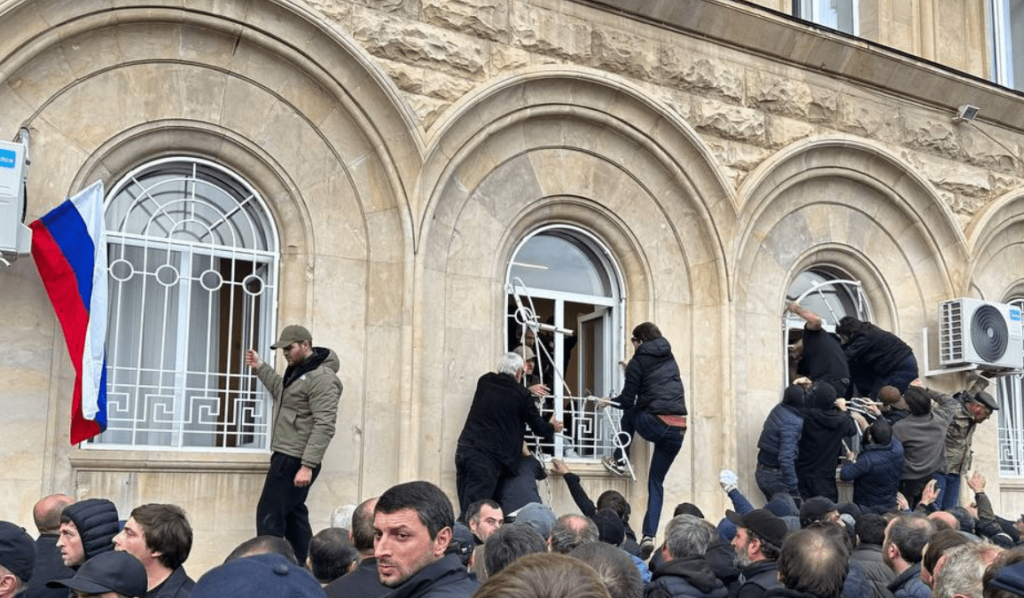The Abkhazian Parliament has voted against the ratification of the agreement on Russian investment in Abkhazia.
Twenty-three MPs attended the extraordinary session of parliament on Tuesday, of which 19 voted against the agreement, while three abstained.
The session was held after a letter with 19 signatures was sent to the Speaker of Parliament, Lasha Ashuba. According to regulations, an extraordinary parliamentary session must be held if a third of the MPs — or 12 MPs — request such a session from the parliamentary speaker.
The agreement on the investment activities of Russian legal entities in Abkhazia was originally signed in Moscow on 30 October by the Abkhazian Economic Minister, Kristina Ozgan, and the Russian Economic Minister, Maxim Reshetnikov.
According to the legislation, the Abkhazian government would exempt registered Russian entities launching investment projects in Abkhazia from property taxes for eight years upon their registration in Abkhazia; grant such entities tax relief on VAT; and exempt the company from customs duties for building materials or equipment imported into Abkhazia for the implementation of the project.
The agreement was met with harsh criticism from opposition parties, as well as a greater swathe of Abkhazian society, igniting a mass protest movement that eventually led to the resignation of President Aslan Bzhaniya as well as Prime Minister Alexander Ankvab.
[Read more: Explainer | How a controversial investments agreement led to the downfall of the Abkhazian president]
Lawmakers debate the law
Before the vote was held on Tuesday, the MPs present shared their opinions on the situation which had developed regarding the investments agreement.
According to Vice-Speaker Astamur Arshba, who was the first to speak, the issue of ratifying the agreement should have been postponed until the presidential elections, which are set to be held on 15 February.
‘I sincerely believe that we are cutting off the branch we are sitting on. The form in which we want to approach this issue is absolutely unacceptable’, Arshba said.
‘Give the future president an opportunity. We will have elections in a couple of months. And we sincerely need to trust the one our people will trust’.
According to MP Daut Khutaba, it would have been better if the agreement had been revoked by the acting president, as this would have caused less political and social tension.
He also emphasised that Russia should treat the situation around the agreement with understanding, given that the MPs are being guided by the people of Abkhazia.
‘We, first of all, thought about our citizens. I am sure that in Russia they also think, first of all, about their citizens, and this situation, it will be understandable to them’, Khutaba said.
He also noted, however, that Russia was ‘probably the most important country for us in the world’, and that it was ‘not very pleasant’ that the MPs had to react in this way to the agreement.
Erik Rshtuni, another MP, held similar views, noting that parliament had done its part in creating around 20 amendments to the agreement, but that the executive power had let the MPs down, forcing them to denounce the agreement in its entirety.
During the discussions, MP Kan Kvarchia called on his colleagues to prepare a vote of no confidence in Abkhazia’s Economic Minister Kristina Ozgan, who he stated was the ‘main conductor of this whole situation’.
Finally, MP Dmitry Marshania drew attention to the fact that an unhealthy information background was created around the agreement, which labelled everyone who criticised the agreement in the form in which it was ratified as ‘anti-Russian’.




 4 December 2024
4 December 2024



